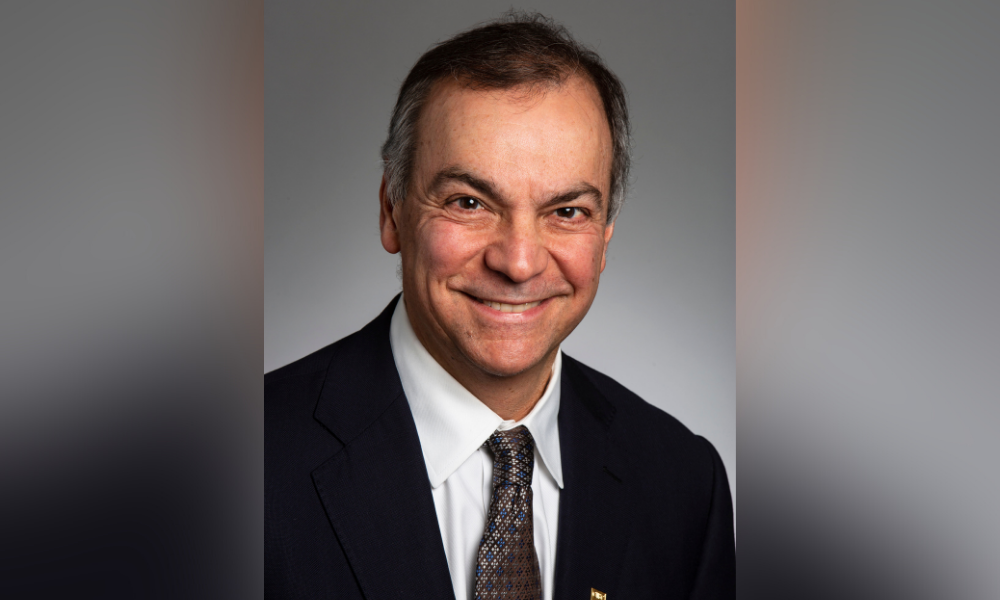An array of new measures on housing have been introduced by the Liberal administration

The federal government’s latest Budget introduced a spate of policies aimed at curbing runaway price growth and boosting supply in Canada’s housing market – but economists appear unconvinced that the measures will have any significant impact.
Housing was among the most prominent features of that announcement, with Finance Minister Chrystia Freeland unveiling proposals including an additional $10 billion to double the pace of home construction over the next decade and a new tax-free savings account to help first-time buyers put money toward a down payment.
Still, the effect of those policies will likely only be “at the margin,” according to CIBC World Markets deputy chief economist Benjamin Tal (pictured top) who said that the government appeared to be attempting to increase supply while also incentivizing demand.
“You have two things happening at the same time: you have the government encouraging first-time homebuyers by providing this tax-free savings account, but at the same time [they] deal with the supply issues to reduce upward pressure on prices,” he told Canadian Mortgage Professional.
“So you have two opposing forces: one encouraging demand, which is always positive for prices, while encouraging supply, which is negative for prices. It’s like putting a humidifier and dehumidifier in the same room, letting them fight, and [seeing] who wins.”
Read next: Federal budget 2022: network CEO reacts
It’s likely to take a while for the full impact of those measures to become apparent – meaning that their short-term effect on the housing market will probably be negligible, according to Tal.
“The impact on demand will be very slow, but the impact [in terms of] the money that goes into municipalities will take a while,” he said.
“You can talk about doubling housing supply as much as you want – [they] simply don’t have the capacity to do so, so that will take a while as well. It sounds good, but the impact on the market as a whole is not very significant.”
While describing the Budget as the most “broad-based” effort in recent memory to address the housing crisis, BMO Capital Markets chief economist Doug Porter agreed that some of the policies suggested “crossed purposes,” with little chance of having an immediate effect or achieving their intended outcome in the short term.
“Probably the two biggest showpiece measures to me were the new home savings plan and the [moves] to support supply,” he told CMP. “In a way, those two are somewhat offsetting, and both will take time to have much of an impact on the housing market.”
Porter said that a “very small” change in the market might come about as a result of other budget announcements on the housing front, including a proposed tax on sales of residential properties within 12 months of purchasing and a measure that would ban foreign non-residents from buying residential property for the next two years.
The latter was a centrepiece of the Liberal Party’s manifesto during last September’s federal election, introduced in a bid to curb skyrocketing house price increases that have taken effect across the country in recent years and particularly during the COVID-19 pandemic.
Read next: Housing supply issues dominate as election looms
The so-called “anti-flipping” tax, meanwhile, is aimed at preventing speculation on home or rental residential properties, with profits from a sale on or after January 01 of next year to be taxed as business income.
“I personally think that both of those are interesting, but probably not likely to move the needle in a big way,” Porter said. “I think on balance, the budget won’t have that much impact on the housing market over the next year.”
On the mortgage broker side, Leah Zlatkin, a Toronto-based broker and LowestRates.ca expert, questioned whether many of the Budget’s proposals were practicable – particularly that tax on residential home sales and the foreign buyer ban.
“They talk about a two-year ban on purchases of residential real estate by people who aren’t citizens or permanent residents… and it wouldn’t have a ban on recreational properties like cottages, cabins or vacation properties,” she said. “So I don’t know how they’re going to enforce those things.
“If you really think about it, in Toronto and Vancouver, less than 5% of the houses are owned by non-residents right now. I don’t know that this is really going to be enforceable – I think this is all kind of lip service.”



